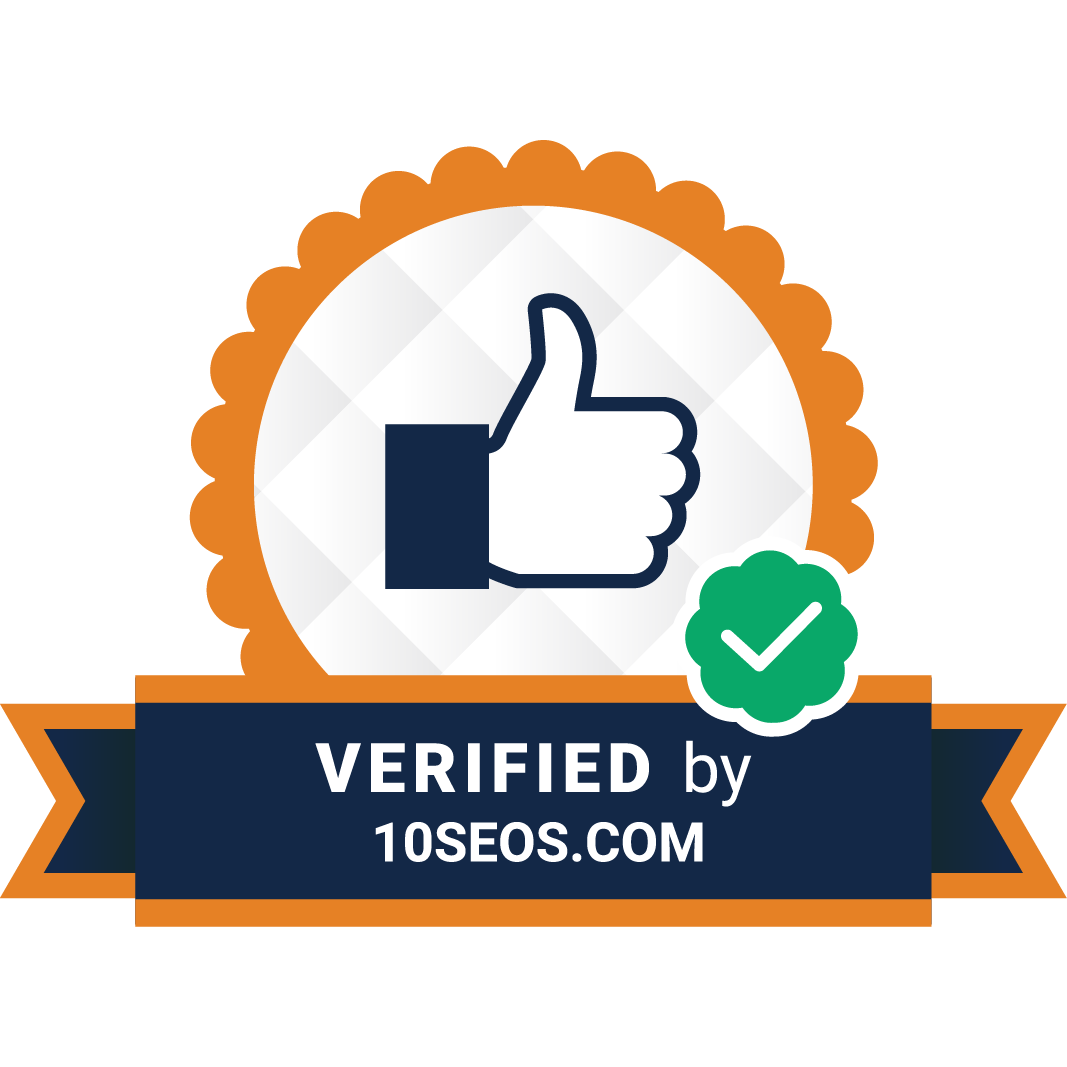Request for more details
In the competitive world of real estate, effective lead generation can make or break your business. With the majority of homebuyers and sellers turning to the internet to find properties and agents, having a strong online presence is essential. In the digital age, potential homebuyers and sellers are using search engines like Google to find real estate information and listings. To ensure your business is visible to these prospects, you need to invest in SEO.
SEO helps your website rank higher in search results, increasing its visibility and driving organic traffic. This step-by-step SEO guide will help real estate professionals harness the power of search engine optimization and the right SEO services to drive more qualified leads to their websites and ultimately boost their business.
What is Real Estate SEO? Why is it Important?
Search Engine Optimization, or SEO, is the practice of optimizing your website to rank higher in search engine results pages (SERPs). When it comes to the real estate industry, SEO plays a pivotal role in attracting potential buyers, sellers, and investors. Why? Because, according to the National Association of Realtors, 50% of home buyers find their homes online. That's a significant portion of your potential clients, and you'll want to ensure they find your website before your competitors.
Key findings of the report from the National Association of Realtors, summarizing the potential homebuyers’ home search process:
- Approximately 47% of recent home buyers started their home-buying journey by browsing online property listings, while 18% of buyers reached out to a real estate agent as their initial step.
- A significant 86% of these recent buyers found their real estate agent to be a valuable source of information during the process.
- On average, buyers conducted their property search for a duration of 10 weeks, viewing a median of five homes, with four of them being exclusively online.
- An overwhelming 96% of buyers made use of online tools during their search.
- Regarding internet searches, a majority of 60% were conducted on mobile devices, while 34% took place on desktop or laptop computers.
- Impressively, 91% of recent buyers expressed at least some level of satisfaction with their recent home-buying experience.
This is why, in the competitive real estate market, having a well-optimized website can mean the difference between attracting potential clients and being lost in the digital noise. SEO allows you to target the right real estate keywords, ensuring that your website appears when potential buyers or sellers search for relevant terms.
Introduction to Lead Generation in Real Estate
Lead generation is the process of attracting potential clients and converting them into actual customers. In the real estate industry, this means finding individuals interested in buying or selling properties. With the majority of people starting their property search online, a robust online presence is crucial for capturing these leads.
Understanding the Real Estate Sales Funnel
In the world of real estate SEO, it's not enough to know which keywords to target; you also need to understand the journey potential clients take as they progress through the real estate sales funnel.
The real estate sales funnel consists of four key phases: Awareness, Interest, Decision, and Action. By aligning your keyword strategy with each phase of the funnel, you can effectively capture and nurture leads at every stage of their real estate journey.
Phase 1: Awareness
The Awareness phase is where potential clients first become aware of their real estate needs. During this stage, they may not have a clear understanding of their preferences or options. Keywords associated with this phase are typically broad and informational, as users are seeking to educate themselves and gather initial insights. Examples of keywords that cater to the Awareness phase include:
- How to buy a house
- Real estate market trends
- Pros and cons of renting vs. buying
- Neighborhoods in [city]
Phase 2: Interest
As potential clients move into the Interest phase, they begin to narrow down their options and develop a clearer picture of what they're looking for. Keywords in this phase become more specific, and users are actively seeking information that aligns with their evolving preferences. Examples of Interest-phase keywords include:
- Luxury homes for sale in [city]
- Best neighborhoods for families in [city]
- Real estate agents specializing in [neighborhood]
- Mortgage pre-approval process
Phase 3: Decision
In the Decision phase, potential clients have a clear understanding of their needs and are actively evaluating options. They are comparing properties, real estate agents, and financing options. Keywords in this phase are often transactional and indicate a strong intent to take action. Examples of Decision-phase keywords include:
- 3-bedroom homes for sale in [neighborhood]
- Top-rated real estate agents in [city]
- Mortgage rates in [city]
- Steps to make an offer on a house
Phase 4: Action
The Action phase is where potential clients are ready to take definitive steps. They may be contacting real estate agents, scheduling property viewings, or initiating the buying or selling process. Keywords in this phase are highly transactional and often include phrases like "contact," "schedule," or "apply." Examples of Action-phase keywords include:
- Contact a real estate agent in [city]
- Schedule a property viewing in [neighborhood]
- Apply for a mortgage in [city]
- List my property for sale
Aligning Keywords with the Sales Funnel
To effectively capture leads and nurture them through the real estate sales funnel, it's crucial to align your keyword strategy with each phase. Begin by targeting Awareness-phase keywords to attract users at the early stages of their journey. As potential clients progress through the funnel, adjust your content and keyword optimization to cater to their evolving needs and intents.
By understanding the real estate sales funnel and tailoring your SEO strategy accordingly, you can create a seamless and engaging user experience, ultimately leading to more conversions and successful lead generation in the competitive world of real estate.
Step-by-step Guide to Real Estate SEO for Lead Generation from Search Results
Given the competitive landscape of SEO in the real estate industry, it's essential to have a well-planned and strategic SEO strategy in place if you intend to generate leads through search traffic.
To assist you in creating an effective real estate SEO strategy for your business, we have compiled a comprehensive guide containing 10 detailed tips. These tips are designed to help optimize your website and improve its visibility on Google, ultimately driving lead generation. Our tailored real estate SEO packages are designed to put these strategies into action, providing you with the tools and expertise needed to outrank competitors and capture high-quality leads.
Optimize Your Website
Your website is your online storefront, and it needs to be SEO-friendly to attract organic traffic. Here's how to optimize it:
-
Mobile Responsiveness
Ensure your website is mobile-responsive. Many users browse real estate listings on their smartphones, so a mobile-friendly site is critical for a positive user experience. -
Page Speed
A fast-loading website is not only user-friendly but also favored by search engines. Use tools like Google PageSpeed Insights to identify and fix speed issues. -
High-Quality Content
Create high-quality, informative, and engaging content related to real estate in your area. This can include blog posts, property descriptions, market reports, and more. -
On-Page SEO
Optimize each page on your website for specific keywords. Include these keywords in your titles, headings, meta descriptions, and throughout your content. -
User-Friendly Navigation
Ensure easy navigation on your website. Users should be able to find properties and information quickly and effortlessly.
Keyword Research and Optimization
You need to identify the keywords and phrases potential clients are using when searching for real estate services in your area. Tools like Google's Keyword Planner, SEMrush, or Ahrefs can help you discover relevant keywords.
Focus on a mix of short-tail and long-tail keywords, including location-specific terms like "homes for sale in [city]" or "real estate agents in [neighborhood]."
-
Short-Tail Keywords
These are typically one or two words long, like "homes" or "real estate." Short-tail keywords are broad and highly competitive but can attract a lot of traffic. -
Long-Tail Keywords
Long-tail keywords consist of three or more words and are more specific, such as "luxury homes in Los Angeles" or "top real estate agents in New York." They often have less competition and are more likely to convert into leads. -
Local Keywords
Since real estate is location-specific, targeting keywords with location modifiers is crucial. Examples include "condos for sale in Miami" or "realtors in San Francisco."
In addition, in real estate, it's essential to target a variety of keyword types to capture different stages of the buying or selling process - navigational, informational, and transactional.
-
Navigational Keywords
Navigational keywords are often used when users are already familiar with a specific brand or website and want to find it directly. In the real estate context, these keywords may include the names of well-known real estate agencies or property listing websites. -
Informational Keywords
These keywords are focused on providing information, such as "how to buy a house" or "tips for selling a home." They can help you attract potential clients in the early stages of their real estate journey. -
Transactional Keywords
Transactional keywords are used by individuals who are ready to take action, such as making a purchase or contacting a real estate agent. Examples in real estate might include "schedule a property viewing," "contact a realtor," or "apply for a mortgage." These keywords are particularly valuable, as they indicate a high level of intent to convert into a client.
Create Landing Pages for Successful Conversions
When you discover transactional and informational keywords during your keyword research, it's essential to create landing pages with a clear purpose – guiding users toward a specific action. These pages play a vital role in engaging potential clients.
The primary goal of these pages is to collect user contact information. This is achieved by providing value, which can be done by offering something free, like a market report, email alerts for property listings, or relocation packages.
On your real estate website, you will typically have three main types of landing pages:
- Your Homepage
- Location-Specific Pages
- Pages Dedicated to Specific Neighborhoods or Buildings
Content Marketing
Content marketing is a crucial aspect of SEO that can help you establish authority and attract potential clients. Here are some content ideas for your real estate website:
-
Blogging
Regularly publish blog posts related to your local real estate market. Real estate blogging strategy can help you to drive more quality traffic & generating leads. your Topics could include market trends, buying guides, and neighborhood spotlights. -
Property Listings
Create detailed real estate property listings with high-quality photos and informative descriptions. Ensure each listing includes relevant keywords. -
Videos and Virtual Tours
Create video tours of properties or virtual tours for potential buyers. Video content is engaging and can help you stand out in search results. -
Guides and eBooks
Offer free guides or eBooks about the home-buying or selling process in your area. This can attract leads who are in the early stages of their real estate journey.
Local Real Estate SEO
Local SEO is a crucial aspect of real estate SEO because you're primarily aiming to appear in local search results. In a successful real estate SEO strategy, prioritizing local SEO becomes essential. It's essential to have a robust local SEO strategy to ensure visibility when individuals search for phrases like "Best real estate business near me" or "realtors near me" on the first page of search engines.
When Google ranks websites for local searches, it considers various factors. Among the most significant are:
- Signals from your Google My Business account
- Citation signals
- Reviews
Google My Business Optimization
As mentioned earlier, local SEO is paramount in real estate. Google My Business (GMB) is a free tool provided by Google that allows you to manage the online presence of your business. Here's how to optimize it:
-
Claim and Verify Your GMB Listing
If you haven't already, claim your GMB listing and verify your business. This gives you control over the information displayed in Google Maps and search results. -
Accurate Information
Ensure all your business information, including name, address, phone number, and website, is accurate and consistent across all online platforms. -
Add Photos
Upload high-quality photos of your real estate properties, office, and team. Visual content can significantly impact a user's decision. -
Collect Reviews
Encourage satisfied clients to leave reviews on your GMB profile. Positive reviews build trust and can improve your local rankings.
Link Building
Link building involves getting other websites to link to your site. High-quality backlinks can significantly improve your website's authority and search engine rankings. Here's how to do it:
-
Guest Blogging
Write guest posts for reputable websites in the real estate niche. Include a link back to your site within the content or author bio -
Local Directories
List your business on local directories, such as Yelp, Yellow Pages, and local chambers of commerce websites. Ensure your NAP (name, address, phone number) information is consistent. -
Network with Local Businesses
Build relationships with other local businesses and ask if they'd be willing to link to your website. You can offer to do the same in return.
Image Optimization for Better Search Visibility
To enhance your website's performance in search results that rely heavily on images, consider incorporating keywords into the image's title, file name, and alt text.
To effectively optimize your images, consider the following:
-
File Name
Select a descriptive file name that helps Google understand the image's content since Google cannot visually interpret images. -
File Format
While there's no one-size-fits-all format for images, PNG or JPEG is generally recommended for most image files because they tend to have smaller file sizes, benefiting your site's speed. -
Alt Text
Alt text serves as a description in case an image cannot be displayed. When adding alt text, consider using your target keyword if it's relevant.
Latest SEO Tools We Use














Social Media Engagement
While not a direct ranking factor, social media marketing can help you connect with potential clients and drive traffic to your website. Here's how to leverage social media for real estate SEO:
-
Share Your Content
Promote your blog posts, property listings, and videos on social media platforms like Facebook, Twitter, and Instagram. -
Engage with Followers
Respond to comments and messages promptly. Engaging with your audience on social media can help build trust and credibility. -
Use Local Hashtags
When posting on platforms like Instagram, use local hashtags to increase the visibility of your content to a local audience
Monitor and Optimize Your SEO Campaigns
SEO is an ongoing process, and it's essential to monitor your progress regularly. Use tools like Google Analytics and Google Search Console to track your website's performance. Pay attention to key metrics like organic traffic, click-through rates, and keyword rankings. Adjust your strategy based on the data you collect to continuously improve your SEO efforts.
Once you've set up these tools, it's essential to monitor the following key performance indicators:
-
Rankings
Observe the keywords for which your website appears in search results and track how these rankings evolve on a month-to-month basis. -
Traffic
Measure the monthly influx of visitors coming from search engine results. -
Conversions
Keep a close watch on the quantity of new leads generated through your search traffic. If you wish to track deeper, you can also monitor sales.














